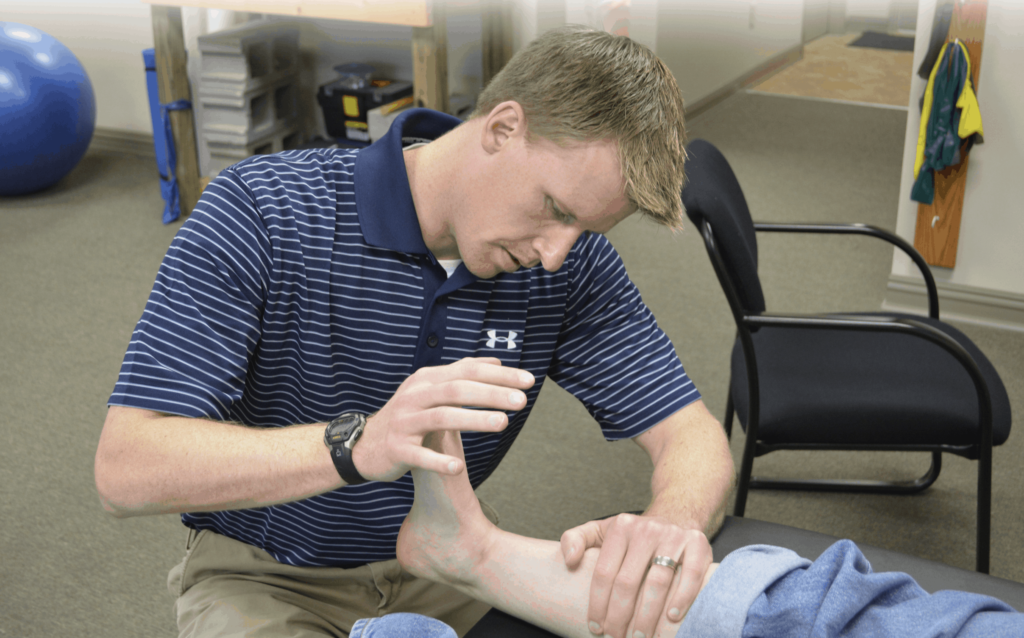By Dustin Richert, PT, Clinic Manager
ApexNetwork Physical Therapy – Bethalto, IL Clinic
A common misconception is that you have to be experiencing pain to attend Physical Therapy. While most individuals attending Outpatient Physical Therapy are experiencing pain from an acute injury, surgery, or from a chronic condition, you do not have to be experiencing pain to benefit from the care of a skilled Physical Therapist.
Whether you have an athlete that has noticed a drop in velocity while pitching, a decline in distance off the tee in golf, an older patient having difficulty getting up from a lower surface, or someone experiencing balance deficits with the potential for falls, Physical Therapy may be appropriate for you. Physical Therapists are taught to evaluate patients by assessing range of motion, joint mobility, strength, flexibility, postural alignment, balance, gait, functional movement patterns, etc. Deficits in any of these areas could lead to functional limitations impacting one’s ability to effectively perform daily activities, household chores, or athletic performance.
Weakness in ankles or hips from a previous lower-body injury preventing push-off from the mound, limited shoulder range of motion into external rotation, or decreased rhythm of the shoulder/scapula (shoulder blade) are a few of the items that may cause a decline in velocity. The golfer that noticed a 20 yard decline in his or her drive in early Spring could have limited mobility of the spine, poor flexibility of the trunk, or decreased core strength after a winter of limited activity. An elderly patient having trouble getting up from a lower chair could have a decline in lower extremity strength and require education in proper sequencing or technique to improve the ability to independently and safely get up from a lower surface. An individual that is experiencing the feeling of being “off-balance” may have lower extremity weakness, limited flexibility, associated dizziness or vertigo, or require training in the use of a cane or walker they may have picked up from a local store.
Assessment by a Physical Therapist when limitations are first noted could help to prevent a further decline in mobility or performance, prevent a chronic condition with joint breakdown, and keep an elderly patient safe and active. Early assessment is crucial to correcting objective findings and could result in minimizing the length of care required saving the patient time and money.
If you have experienced a decline in your mobility or athletic performance and would like to see if we can assist you, call one of our Apex facilities for a free screening.



